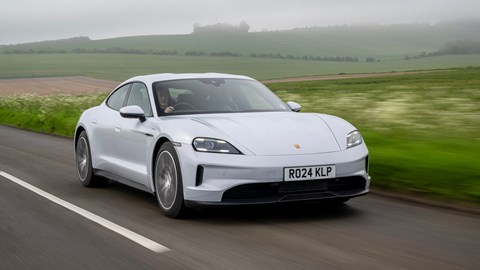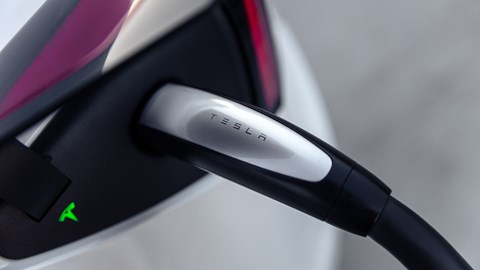► Free VED ends in April 2025
► Other tax incentives remain in place – for now
► CAR explains everything you need to know
Electric vehicles (EVs) are set to lose their tax-free status on 1 April 2025. From that date, owners will have to start paying vehicle excise duty (VED), more commonly known as road tax or car tax. It’s a significant step, removing a key incentive for private buyers in particular to choose an EV – and a time when those buyers are showing increasing resistance to making the switch.
But the change is widely regarded as a necessity. That’s because revenues from VED would otherwise dwindle as the 2030 ban on the sale of new petrol and diesel cars comes into effect. VED currently generates around £8 billion per year, huge revenues that the Treasury can’t afford to lose.
Here, we’re going to look at exactly what changes are happening, how much EV owners will have to pay, and the other tax incentives that are still in place.

Do EV owners have to pay any road tax now?
Right now, owners of new and existing electric cars don’t have to pay the ‘standard’ VED charge. However, ones with a sale price of more than £40,000 when new – and a lot of them do – are liable for the so-called expensive car supplement, which is paid from the car’s first through sixth birthdays.
What’s the situation from 2025?
As of 1 April 2025, EVs owners have to start paying VED – or from the next renewal after that date. All EVs will be lumped into the lowest Band A and, as with every other car, what you pay will depend on when your EV was registered.
The VED charge for EVs registered before 31 March 2017 is £20 per year. EVs registered from 1 April 2017 will be charged £195 – the same as every other car. From 1 April 2025, buyers of new EVs will also have to pay £10 for the first year’s VED – the top band is over £5,000.
The expensive car supplement remains in place and means owners of EVs that cost more than £40,000 new will have to pay a total of £795 per year from the car’s first through sixth birthdays.
What about electric vans?
Electric van owners will also be required to pay vehicle excise duty from 1 April 2025. Most e-vans will be moved into the same light goods vehicle classification as their petrol and diesel counterparts, with carries a charge of £345 per year.
Are there still tax incentives on EV company cars?
The tax-free status EV company cars enjoyed ended in 2024, but users still pay a much lower rate of benefit-in-kind tax than other types of car attract. Starting at 2% for the 2024/2025 financial year, the rate will increase incrementally to 9% for 2029/2030.
Other tax incentives remain in place as well, at least for the time being. However, the Government has announced its intention to end shared ownership schemes that can help company car drivers avoid paying benefit-in-kind taxes in the 2026 financial year.
Company car tax calculator on our sister website Parkers.co.uk

Are there any taxes on EV charging?
There isn’t an equivalent of fuel duty levied on charging an electric car, however you do pay VAT on it. Use a public EV charger and you’ll pay VAT at the standard rate of 20%. But you can save money by charging at home – domestic electricity attracts just 5% VAT. At present, there’s no way of determining what domestic electricity is being used for, so a higher rate of VAT can’t be applied to EV charging. You can save even more by switching to an EV-specific electricity tariff.
If you’re considering taking the plunge and choosing an electric car, our advice is to look past the steeper purchase price and do the maths to work out how much you’ll save each year – in VED car tax, benefit-in-kind (if appropriate), fuel costs and any congestion charges in your area. Once you’ve done the calculations you’ll know whether the costs stack up to your benefit.
Note that VED rates rise in line with Retail Price Index (RPI) inflation.